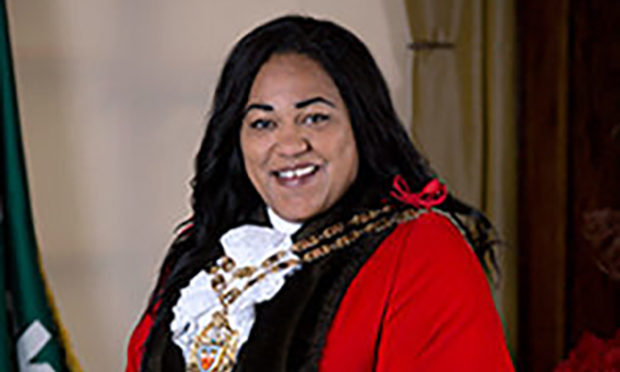Councillor shares first-hand experience of racial profiling at hands of police as she demands changes to Stop and Search

A Hackney councillor shared her first-hand experience of racial profiling as she pressed Scotland Yard for changes to the force’s controversial stop and search policy.
Speaking as she grilled Detective Chief Superintendent (DCS) Marcus Barnett during a Living in Hackney Scrutiny Commission (22 June), Dalston councillor Soraya Adejare (Labour) told how police officers pulled her over for “looking lost” – even though she was driving home from work.
The anecdote came just days after Metropolitan Police commanders turned down a council request to introduce performance targets in a bid to weed out potentially racist officers.
She said: “There’s been disproportionate enforcement.
“There’s a narrative of police stopping people because they look suspicious, because they’ve got a hoodie over their head.
“I myself have been stopped, and the reasons given were suspect: I looked lost making my way home from Hackney.
“I was asked ‘what are you doing here?’ and asked to get out of my car on a local street.
“The community see the middle class getting away with snorting Charlie and selling it and not being put under the same pressure as minority communities.”
She then asked if data on individual police officers with low success rates would be shared with community groups.
But DCS Barnett – who runs the MPS Central East Borough Command Unit – insisted that robust disciplinary measures are already in place for any officer found to have abused stop and search powers.
He replied: “If there’s a misconduct issue where officers are not performing in a legitimate, honest way as we would expect as an organisation – in line with the code of ethics, in line with the law, in line with the clear requirements of police conduct – they will get dealt with.
“That could be anything from reflective performance, written warnings, or gross misconduct.
“There is a huge range of measures that are open for the public to see and understand.”
Earlier this month Scotland Yard refused to give officers in Hackney performance targets for stop and search – despite councillors saying they were “aghast” at the lack of effort in monitoring its effectiveness.
A strongly-worded letter from members of the Living in Hackney scrutiny commission demanded changes in April after figures revealed that only one in five searches produced evidence of criminality.
The letter – addressed to Barnett and fellow commanders Catherine Roper and Jane Connors – claimed that the controversial tactic’s low success rate meant was not “a good use of resources”.
It read: “Any model of success has a way of demonstrating good performance.
“We would like the local Basic Command Unit (BCU) and Met HQ to consider introducing set targets for their stop and search police activity to drive improved performance.
“We hope this will help the local BCU and the Met to be able to demonstrate that stop and search is a successful police activity and tool in crime prevention/reduction.”
But a reply from an MPS spokesperson dismissed the prospect – claiming it could force officers to steer clear of potentially legitimate stops.
The spokesperson said: “The setting of targets is not a practice currently undertaken by the MPS in regards to the number of stop and searches an officer should be conducting.
“This is to ensure that each encounter and search completed is conducted for ethical reasons and because the officer is not under undue pressure to quota fill.
“Every stop and search is conducted under its own merit and the officer must be able to justify it in accordance with the relevant legislation.
“Equally officers should not be deterred from searching an individual due to concerns that they may fall below a set target.”
